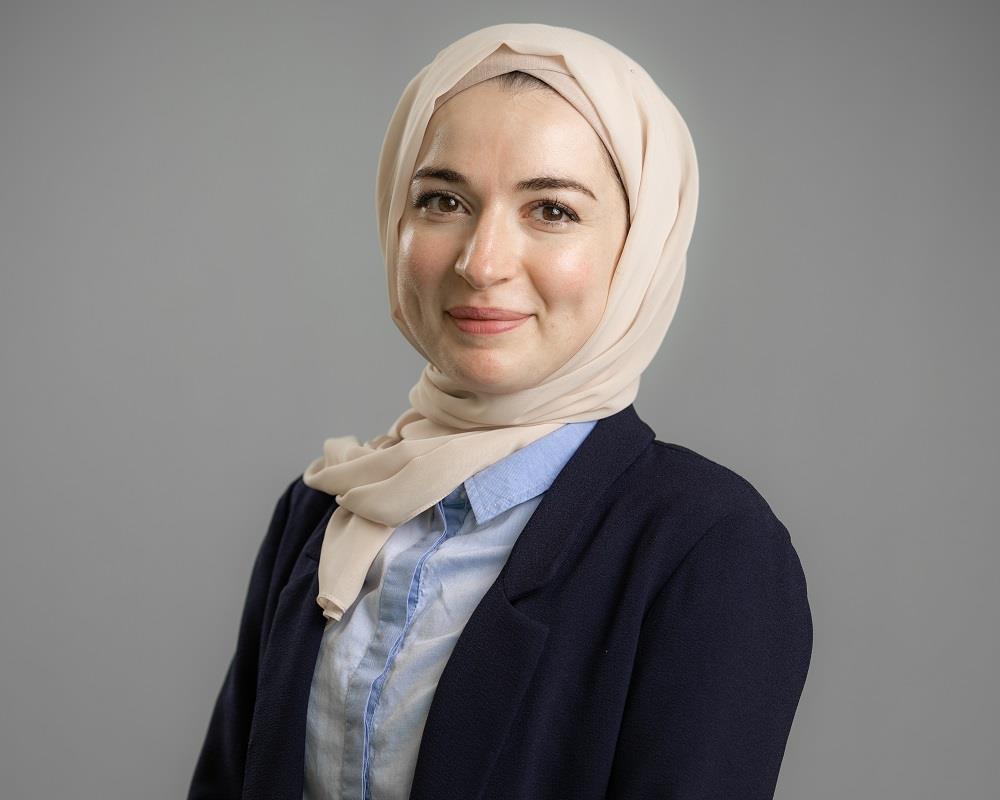(MENAFN- The Peninsula) The Peninsula
Doha, Qatar: If Qatar's water treatment facilities – those that provide us with clean water – shut down for any reason, experts at the Qatar Environment and Energy Research Institute's Water Centre say that the country will have few days' worth of consumable water stored for emergencies.
While Dr. Deema Almasri (pictured), a Scientist at the Water Center in Qatar Environment and Energy Research Institute (QEERI), part of Qatar Foundation's (QF's) Hamad Bin Khalifa University, highlighted steps that Qatar had taken to increase its water storage through implementing its water security mega reservoir project – which aims to increase the country's reserve of clean water to seven days in case of crisis by 2026 in the first phase – she still believes we all have a role to play when it comes to managing our water consumption, and the key to changing our behavior towards the environment begins with knowledge.
“We need to be aware that Qatar, as a country that falls in an arid environment, is one of the world's most water stressed countries, since it has few natural freshwater sources.”
“The only natural freshwater source in Qatar is groundwater, which is over extracted. Hence, to avoid depleting its groundwater sources, Qatar employs seawater desalination as the major source for potable water production,” Dr. Almasri said.
She explained that water desalination comes at a high cost for the environment for two reasons as separating salt from water is considered an energy-intensive process that emits huge amounts of CO2 – and this is the reason why producing desalinated water is one of the highest contributors of CO2 emissions in Qatar.
However, it must be noted that currently the thermal desalination plants in Qatar generate clean water as a by-product of the electricity generation process from gas turbines; and hence it is difficult to estimate the contribution to CO2 emissions in isolation.
The other reason is that desalination involves a large amount of salt generation as waste, along with chemicals necessary for seawater desalination - which needs to be disposed of somewhere.
Qatar shares its marine waters with countries that have water scarcity issues too and also depend on desalination.
“Since seawater desalination is the main source that provides clean (drinkable) water in Qatar, QEERI's Water Center is carrying out a lot of research on modifying the technologies used in thermal desalination to use less heat and hence less energy.”
“Another area the Water Center is looking to modify is, instead of direct brine disposal from desalination plants, studying the possibilities of brine mining, which is separating the useful minerals from the brine such as: sodium chloride, magnesium and calcium and selling them or reusing them, which can alleviate the impacts of high salinity of water on the environment,” said Dr. Almasri
Dr. Gonzalo Castro de la Mata, Executive Director of Earthna: Center for a Sustainable Future, explains that all humans, regardless of the nature of their environments, need to understand that we are all part of one ecosystem, and our purposeful action is needed in all parts of the world to maintain water security.
“We need to really be aware of the importance of water for global sustainability. In any part of the world, when we open the water tap, we need to think about where this water is coming from.
“In Qatar it comes from desalination, and in other countries, water starts on a watershed in forests that have captured this water. And if we don't protect our forests that capture this water, then we are not going to have water.




















Comments
No comment